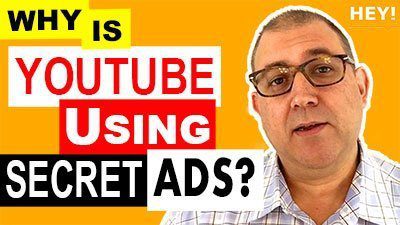Last updated on June 14th, 2024
If you were the No. 1 online video advertising company in the world, and you wanted to promote one of your services, how would you do it? Well it stands to reason you would primarily use video ads, right?
Not always, apparently, in the case of YouTube and YouTube Red.
YouTube Red, as you may know, is a paid service that allows viewers to not see ads on the network. But that’s not all. For $9.99 per month, you can watch ad-free, listen to music and videos off-line on your phone, and watch exclusive content by top creators. I’m not arguing it’s value.
What I think is interesting is while they are using some video ads (either straight pre-rolls or trailers amplified by paid media) to promote the service, they’re also using a pop-up-like text ad in the web page and app that encourages viewers to sign up to the ad-free service.
I can’t really describe what the ad format is called as it’s not really like other formats, but let’s call it a “mini-text pop-up.”
Apart from the irony of running ads to get people to not watch ads, here’s my main question: Why not only use video ads? I know that YouTube knows who all the best ad creators are?
Certainly, many ads are for driving conversions. But there are also ways of setting up videos for conversions. My mind, probably like yours, turns first to “pooping unicorns.” This video for Squatty Potty, created by the Harmon Brothers with additional work by others, including strategy ninja Derral Eves, also created videos for brands like Chatbooks, FiberFix and others. They’re great at driving conversion.
In general, it is a disconnect that YouTube isn’t able to get all of its YouTube Red conversions to meet its goals by just using YouTube ads. Because video ads can work very well in driving conversion, if you use them in the right way.
Clearly, YouTube Red is essential to YouTube’s future strategy. In the embedded video I dive into several concurrent trends that show why YouTube is pulling out all the stops to win the day. I touch on conversion-driven ads, video content marketing, influencer marketing, ad blocking, the premium content streaming wars with both music and video between YouTube, Spotify, Amazon, Netflix, Hulu, and Apple, and the YouTube TV/Cable challenge.
Do you agree or disagree? Am I on track or totally off base? If you have thoughts or questions, please post in the comments section, thanks!

